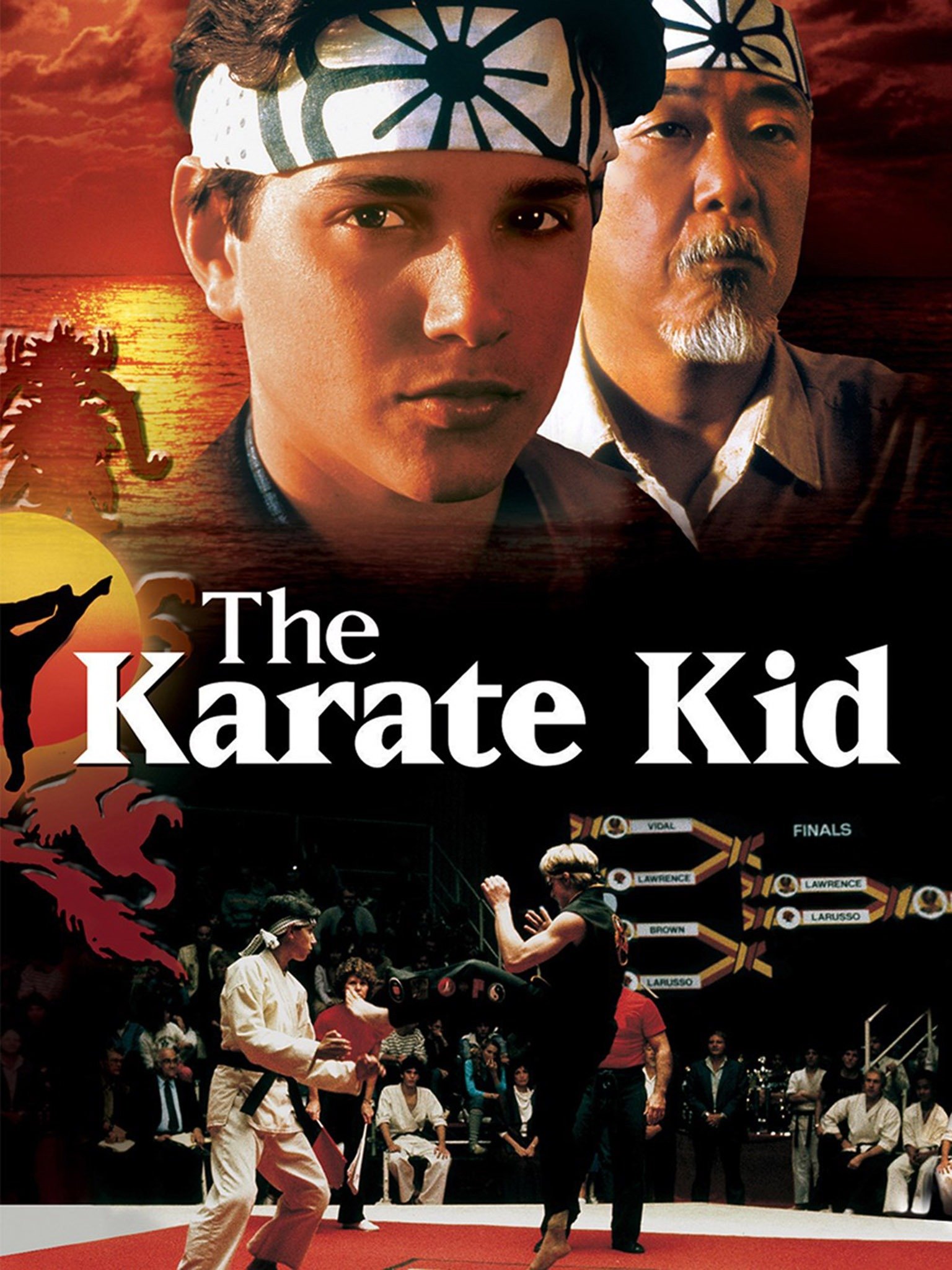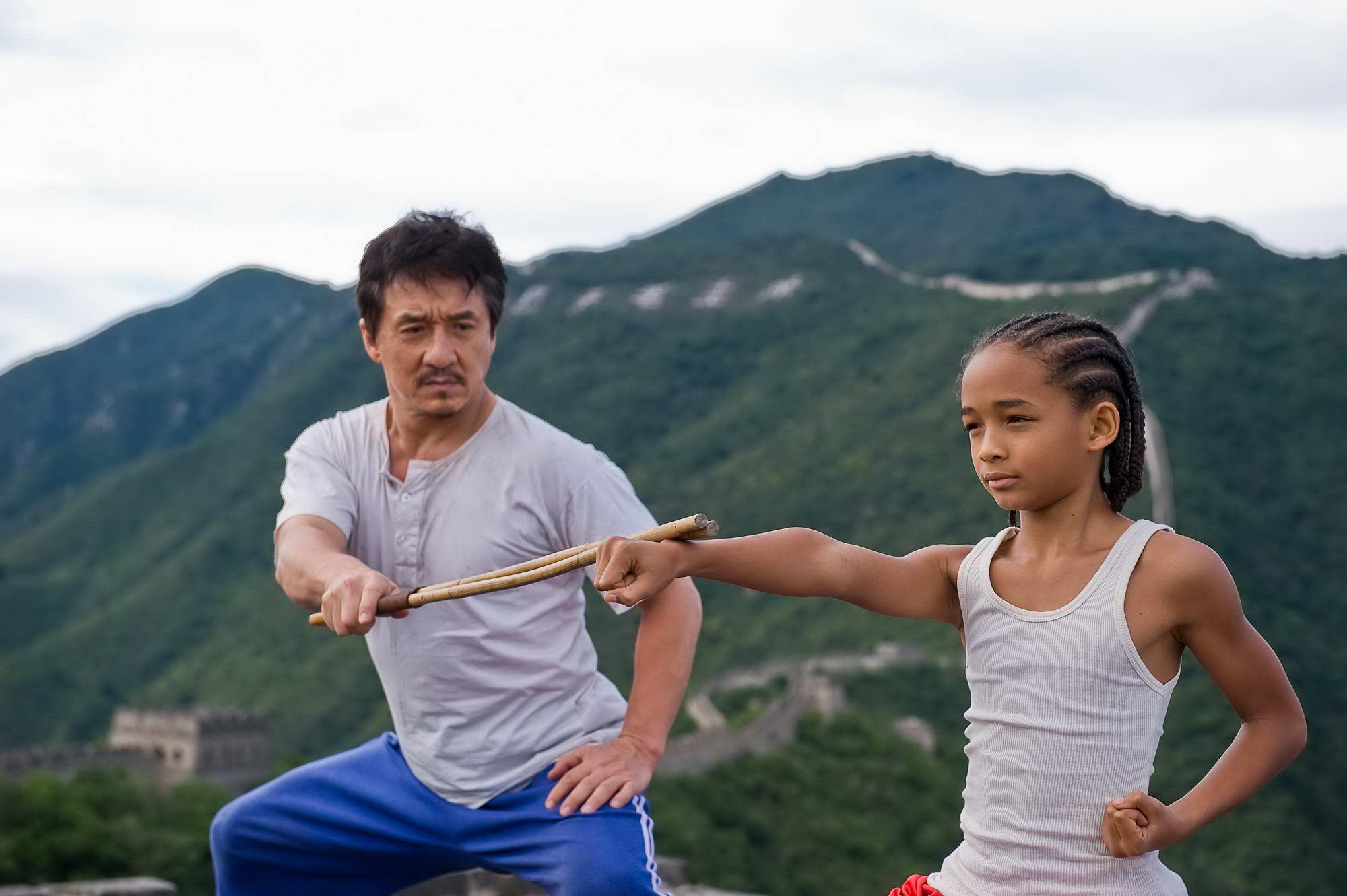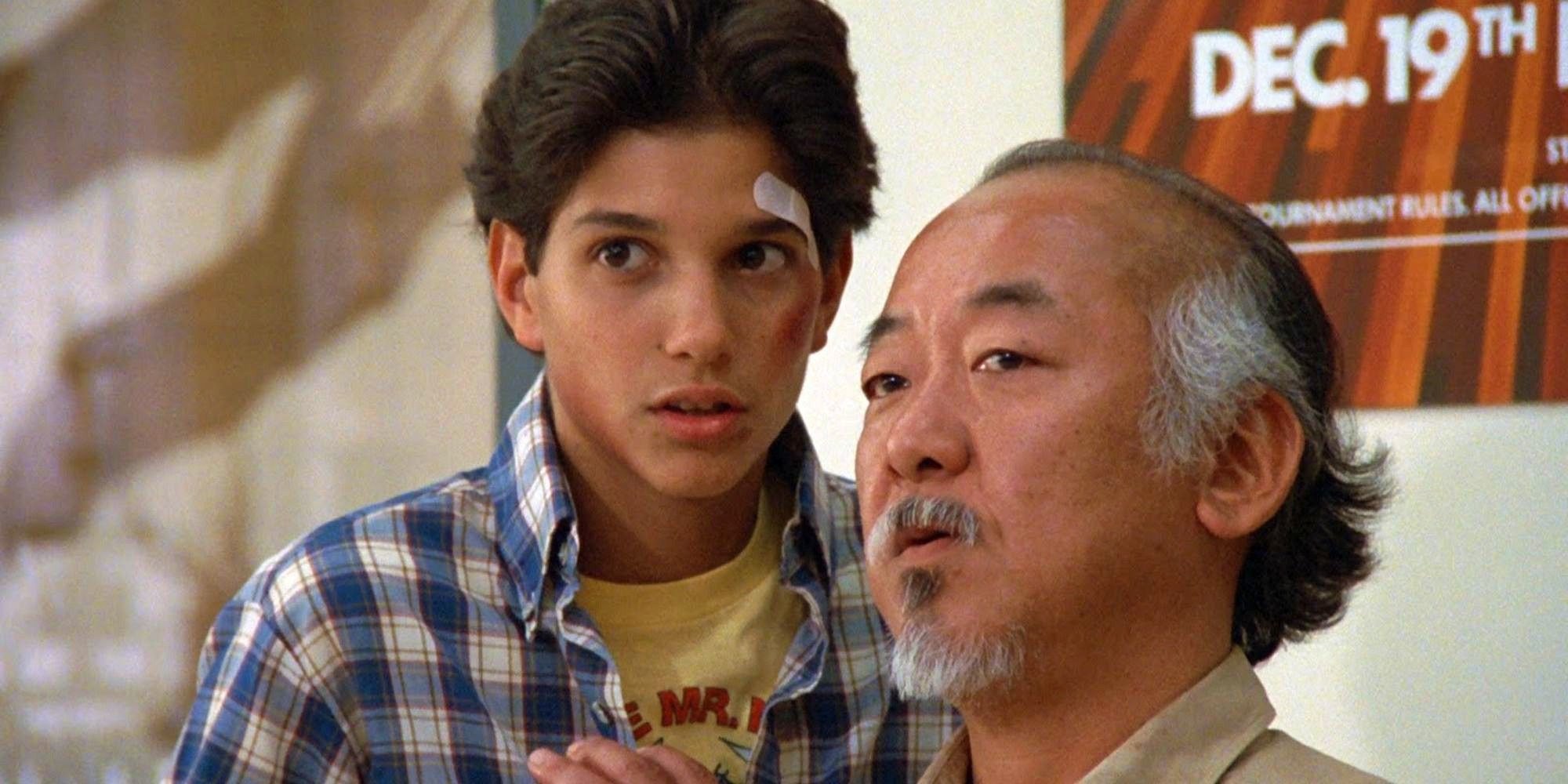The Karate Kid Legacy: Re-evaluating Daniel, Johnny, And The Crane Kick In 2024
Do you ever think about the movies that just stick with you, the ones that really shape a piece of your childhood or even your adult view of things? For so many of us, that movie is definitely the karate kid. It's more than just a film about martial arts; it's a story that sparked countless conversations, debates, and, honestly, a lot of passion. From its memorable characters to those iconic moments, the 1984 classic still holds a special spot in people's hearts, even after all these years.
It's interesting, isn't it, how a movie can feel so familiar, yet when you look at it again, maybe through different eyes, you start to see things a little differently? We've all got our favorite scenes, our lines we quote, and our strong opinions about what went down. This film, as a matter of fact, really gets people talking about what it means to be a hero, what a villain looks like, and what's fair in a fight.
Today, we're going to take a fresh look at the karate kid, especially with some of the ideas that have been buzzing around lately. We'll dig into some of the points that make us question the original story, like who was really the victim, and what was up with that famous crane kick. It's a chance to revisit a classic and perhaps even understand it in a new way, you know, sort of unpack it all.
- Ariana Grande Bangs
- Raccoon Cotton Candy
- Alice Thunder Batting Cage
- Cleat Sharpener Tool
- All Pups Seasoning
Table of Contents
- Revisiting the Classic: What Made The Karate Kid Endure?
- Daniel LaRusso: Victim or Instigator?
- Johnny Lawrence: More Than Just a Bully?
- The Crane Kick: Legality and Impact
- Cobra Kai's New Lens: Re-evaluating the Past
- Martial Arts Realism in Film
- Frequently Asked Questions About The Karate Kid
- The Enduring Appeal of The Karate Kid
Revisiting the Classic: What Made The Karate Kid Endure?
The original the karate kid, released back in 1984, really captured something special. It was a movie about a new kid in town, Daniel LaRusso, finding his way, facing challenges, and learning some serious life lessons from a wise, if a little quirky, mentor, Mr. Miyagi. It had heart, action, and a pretty straightforward message about standing up for yourself. For many, it was just a really good story, you know, about overcoming odds.
Plenty of films are out there, and honestly, some are probably better overall when you look at every little detail. But, I still absolutely adore this one. It's got a certain charm, a warmth that just pulls you in. It's the kind of movie that makes you feel good, even if you start to pick apart some of its pieces later on. It's a classic for a reason, basically.
It's pretty amazing how a film from so long ago can still spark so much discussion today, especially with the way new shows have built on its world. This enduring appeal, honestly, is a big part of why we're still talking about Daniel, Johnny, and all the lessons learned on and off the mat. It just keeps giving us things to think about, doesn't it?
Daniel LaRusso: Victim or Instigator?
One of the biggest questions that comes up when people talk about the karate kid, especially now, is about Daniel LaRusso himself. Was he truly a victim of bullying, or did some of what happened to him come about because of his own actions? It's a point that gets a lot of people thinking, you know, when they rewatch the movie.
My own experience with bullying, actually, makes me look at this a little differently. I was severely bullied in junior high, and let me tell you, bullies often act a certain way. They pick on people without much reason, just to feel powerful. But in the movie, some folks argue that Daniel’s troubles often seemed to follow his own choices, like getting involved with Ali, or messing with Johnny’s bike. It's a perspective that suggests the movie doesn't always present Daniel in the best light as a pure victim.
This isn't to say Daniel deserved what he got, not at all. But it does open up a conversation about how we define bullying and who is truly at fault in these situations. It's a complex thing, and the movie, in some respects, invites us to consider those complexities, which is pretty cool for an 80s film.
The Complexities of Bullying
When you think about bullying, it's rarely a simple, one-sided thing in real life. There are often layers to it, and sometimes, reactions can escalate situations. The film, for all its classic charm, shows us a dynamic where Daniel, while new and vulnerable, also makes some choices that, arguably, provoke Johnny and his friends. It's a cycle, basically, that gets worse and worse.
This isn't to excuse Johnny’s behavior, which was clearly aggressive and wrong. But it makes you wonder about the whole setup. A movie about a kid fighting against his bullies, yet the movie doesn't always show the victim in the best light, and the bully isn't really a bully in every single scene. It's a nuance that many people, myself included, have started to notice more and more over time.
So, it's less about blaming Daniel and more about acknowledging that the situation was, you know, kind of messy. It wasn't a clear-cut case of an innocent person being targeted out of nowhere. This makes the story, in a way, feel a little more real, even if it wasn't the initial intention.
Johnny Lawrence: More Than Just a Bully?
If Daniel's role as a victim is debated, then Johnny Lawrence’s role as the quintessential bully also gets a lot of scrutiny these days. In the original the karate kid, he's presented as the antagonist, the leader of the Cobra Kai gang, and the main source of Daniel's troubles. But is that the whole story? Many people, including myself, have started to see more to Johnny than just a bad guy.
When you look back, Johnny is clearly influenced by his sensei, John Kreese, who preaches a harsh, "no mercy" philosophy. Johnny is, in a way, a product of his environment and his training. He's not just mean for the sake of it; there's a code he follows, albeit a twisted one. He's got his own issues, his own sense of pride, and a girlfriend who leaves him for the new kid. It's a bit more complicated than just simple villainy.
The idea that the "bully isn't really a bully" in every aspect of the film is a fascinating one. It suggests that characters, even in what seems like a simple good-versus-evil story, can have more depth. This re-evaluation, honestly, makes the film even richer to discuss and think about, particularly in 2024.
The Crane Kick: Legality and Impact
Ah, the crane kick. It's perhaps the most famous moment in the karate kid, the move that wins Daniel the All Valley Karate Tournament. It's iconic, absolutely. But then, when Daniel lifts his knee for the crane kick, a lot of people have pointed out something pretty significant: was it actually legal?
The rules of the tournament, as shown in the movie, state that kicks to the face are not allowed. Yet, Daniel lands a kick right to Johnny's face, and he wins. This has led to a long-standing debate among fans: did the karate kid give Daniel the victory in spite of a completely illegal kick to the face? It's a question that has really, really fueled discussions for decades, and it's a valid point to bring up.
This particular detail, the supposed illegality of the kick, makes you think about the film's message. Is it about fair play, or is it about winning at all costs? It adds a layer of moral ambiguity to Daniel's victory, which some people find quite compelling. It's not just a straightforward win; there's a little asterisk next to it, basically.
Cobra Kai's New Lens: Re-evaluating the Past
This brings us to the YouTube series, *Cobra Kai*. Interestingly, the series does a marvelous job of taking these concepts further, unpacking and exploring them in ways the original film never could. It picks up decades later, focusing on Johnny Lawrence's life and his perspective, really giving him a chance to tell his side of the story. It shows how much of a lasting impact those events had on him.
*Cobra Kai* has been a huge hit because it taps into that nostalgia while also challenging our preconceived notions. It explores the idea that there are two sides to every story, showing Daniel as sometimes rigid and Johnny as often trying to do good, even if he messes up a lot. It has, honestly, completely reshaped how many people view the original movie, making them question who was truly in the right.
While some might have very strong opinions about the show itself – like, for some, everything else and the show *Cobra Kai* is absolute dogshit, in their opinion – it's hard to deny that it has profoundly influenced the conversation around the karate kid. It has certainly made us look at the characters with more nuance, which is a pretty cool thing for a sequel series to achieve.
Martial Arts Realism in Film
Beyond the character dynamics, another point that sometimes comes up is the portrayal of martial arts training itself. A movie about a kid learning kung fu to fend off his bullies and calling it the karate kid is, to me, comparable to some other creative liberties taken in film. It's a common thing in movies, of course, to simplify or dramatize things for the story.
But let's be real for a moment about the training. The maximum mat time a teenager would get at a karate school would be around 3 hours a week, based on multiple Google searches of classes offered. So, if Johnny trained for, say, three hours a week, and Daniel learned all he did in a few months, it's a bit of a stretch, isn't it? Movies often compress time and skill acquisition for dramatic effect.
This doesn't take away from the enjoyment of the film, not at all. It's just a fun detail to consider, you know, how much cinematic magic goes into making someone a martial arts master in a short period. It's part of the charm, really, of these kinds of movies.
Frequently Asked Questions About The Karate Kid
People often have a lot of questions about this classic film, especially now that there's so much more discussion around it. Here are some common ones:
Is the crane kick illegal in real karate tournaments?
Well, in many real-world karate tournaments, direct kicks to the head, especially with a full-force impact, are typically not allowed. Rules vary, of course, but the kind of direct face kick seen in the karate kid would likely result in a penalty or disqualification in a regulated competition. The film, you know, takes some creative license for dramatic effect.
Who was the real bully in The Karate Kid?
This is a really popular debate now! While Johnny Lawrence and the Cobra Kai students are clearly the aggressors throughout much of the film, many viewers argue that Daniel LaRusso also contributes to the escalating conflict through his actions, like pouring water on Johnny or getting involved with Ali. It's not as simple as a clear-cut hero and villain, basically, when you look closer.
Did Daniel LaRusso actually win fairly?
The question of Daniel's fair win often comes back to the crane kick. Given the tournament rules shown in the movie (no kicks to the face), his winning move is certainly debatable in terms of its legality. This point, honestly, adds a layer of complexity to the ending that many fans enjoy discussing, making the victory a bit more ambiguous than it first appears.
The Enduring Appeal of The Karate Kid
So, when we look back at the karate kid, it's clear that its appeal goes far beyond just a simple story of good versus evil. It's a film that has grown with its audience, allowing for new interpretations and discussions, especially with the fresh perspectives offered by *Cobra Kai*. It makes you think about things, like, was Daniel truly a victim of bullying when everything that happened to him was in response to his actions? These are the kinds of questions that keep a movie alive, really.
It's a testament to its staying power that people are still passionate about it, debating its nuances, and even feeling a bit nostalgic for it. Get ready to sweep your collection's leg, because Alvidson's classic the karate kid continues to be a rich source of conversation and entertainment, even here in late 2024. It's pretty amazing, honestly, how much it still resonates.



Detail Author 👤:
- Name : Mr. Julius Prosacco
- Username : pagac.clement
- Email : fanny.bradtke@gmail.com
- Birthdate : 1977-01-03
- Address : 6882 Olen Union East Kane, AK 25180-4394
- Phone : (458) 822-3742
- Company : Parker Group
- Job : Roof Bolters Mining
- Bio : Blanditiis doloribus facilis atque. Sit molestiae occaecati fuga non ipsa placeat vel. Impedit quibusdam consequuntur modi ducimus dolor. Et quidem saepe quidem cumque fugit reprehenderit qui.
Socials 🌐
instagram:
- url : https://instagram.com/cordiao'hara
- username : cordiao'hara
- bio : Natus sit est modi et doloribus porro. Consequatur expedita consectetur sunt quos quo distinctio.
- followers : 6977
- following : 518
facebook:
- url : https://facebook.com/cordia_o'hara
- username : cordia_o'hara
- bio : Nesciunt natus consectetur nihil eaque mollitia aut deleniti.
- followers : 2290
- following : 1634
linkedin:
- url : https://linkedin.com/in/co'hara
- username : co'hara
- bio : Reiciendis placeat esse temporibus libero.
- followers : 2948
- following : 144